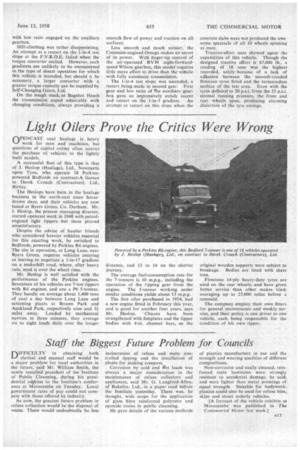Staff the Biggest Future Problem for Councils
Page 47

If you've noticed an error in this article please click here to report it so we can fix it.
nIFFICULTY in obtaining both
clerical and manual staff would be a major problem for local authorities in the future, said Mr. William Smith, the newly installed president of the Institute of Public Cleansing, during his presidential aOress to the Institute's conference at Morecambe on Tuesday. Local government rates of pay could not compete with those offered by industry.
As now, the greatest future problem in refuse collection would be the disposal of waste. There would undoubtedly be less incineration of refuse and more controlled tipping and the installation of plants for making compost.
Corrosion by acid and Re loads was always a major consideration in the maintenance of refuse collectors and appliances, said Mr. G. Langford-Allen, of Bakelite. Ltd., in a paper read before the Institute yesterday. There was, he thought, wide scope for the application of glass fibre reinforced polyester and epoxide 'resins in public cleansing.
He gave details of the various methods of plastics manufacture in use and the strength and wearing qualities of different compositions.
Non-corrosive and easily cleaned, reinforced resin laminates were strongly resistant to accidental damage, he said, and were lighter than metal pressings of equal strength. Suitable for bodywork, plastics could also be used for refuse bins, skips and street orderly vehicles.
[A forecast of the vehicle exhibits at Morecambe was published in • The Commercial Motor last week.]




































































































